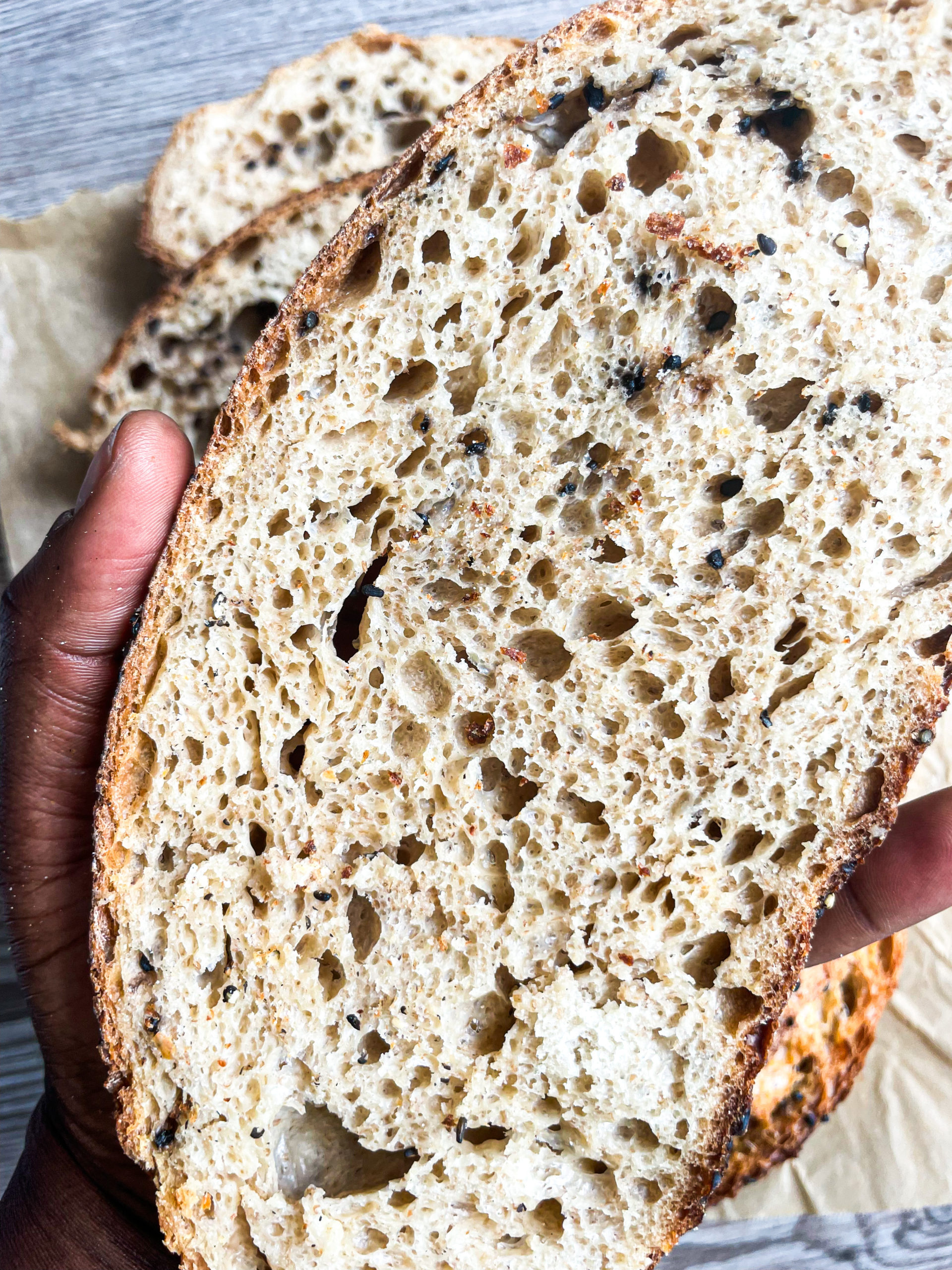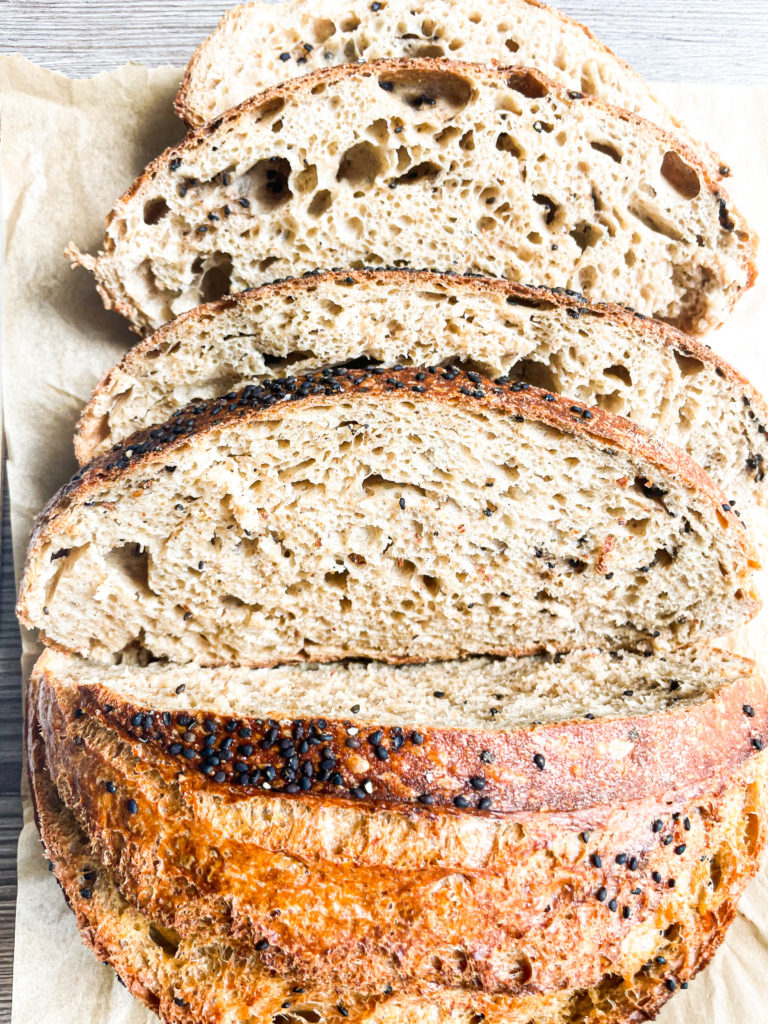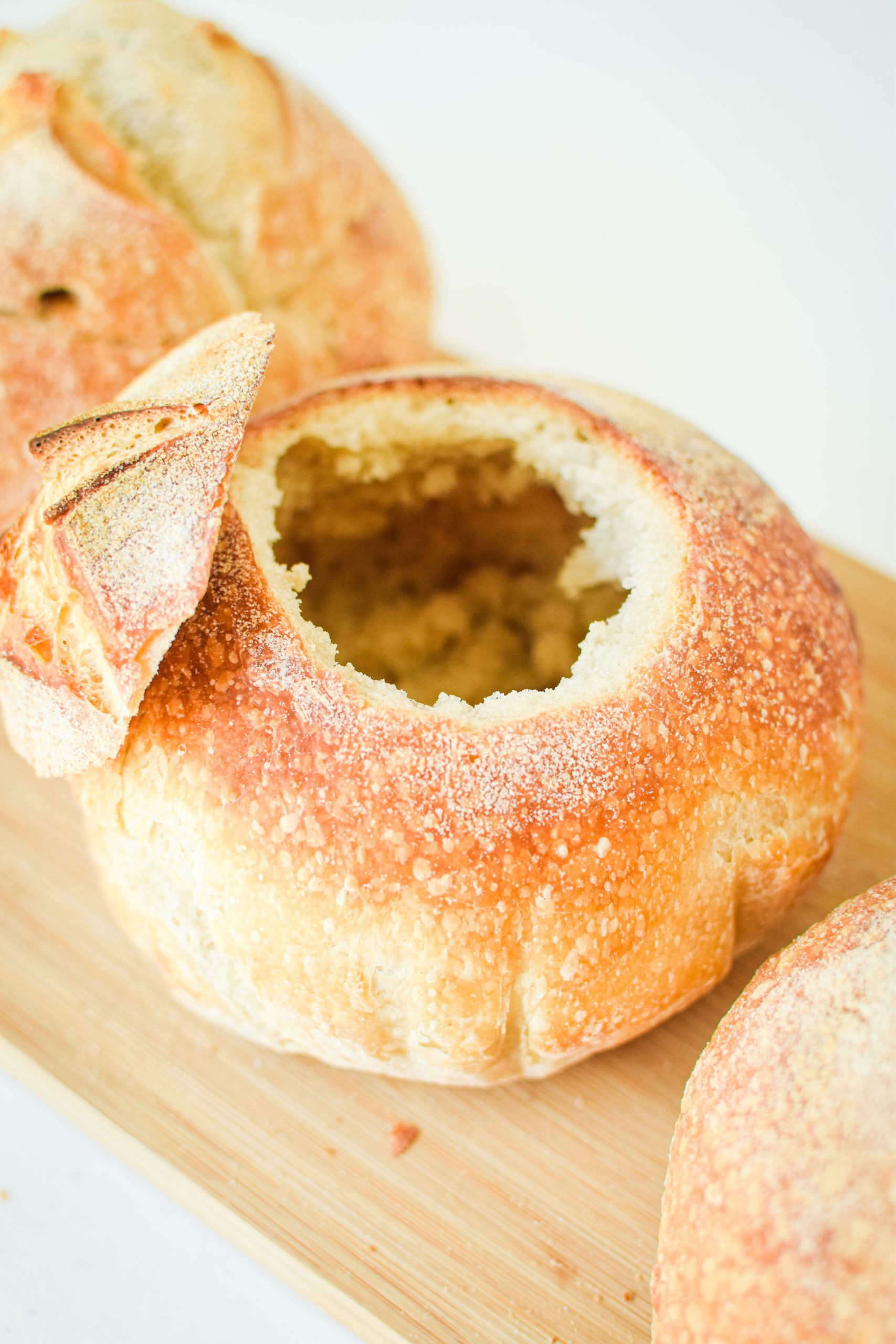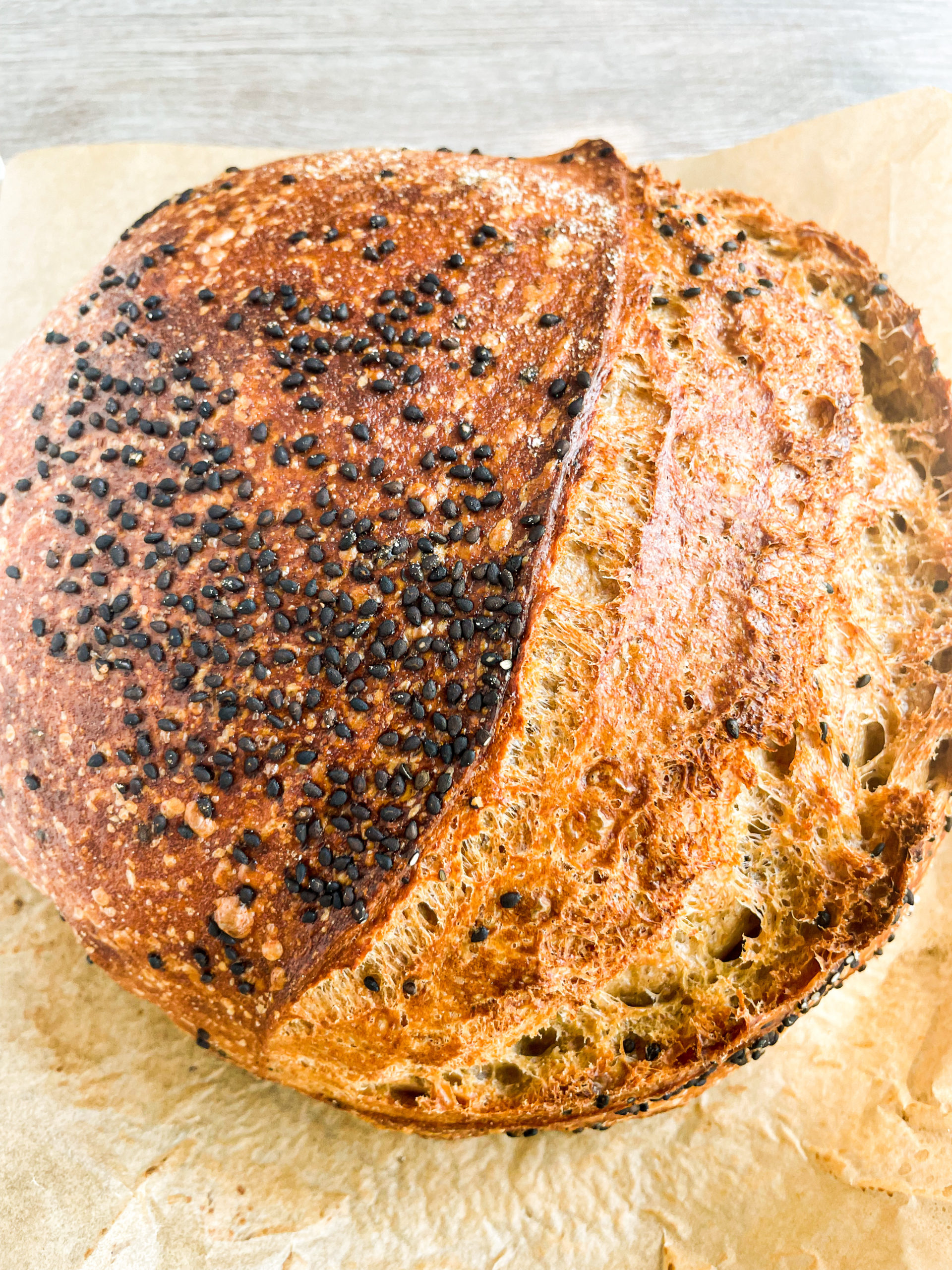If you are looking to get into sourdough and do not know where to start, this blog post is for you!
First of all, I am not here to give you detailed instructions about how to make a starter and the first sourdough loaf because, to be honest, I am still learning and I am still a newbie. But I have been drawn to sharing more of my food interests on my blog and fermentation has been a big part of my kitchen experiments, one of which is sourdough.


I have been thinking about sourdough for a while. After I saw the It’s Alive video on Bon Appetite Mag’s youtube channel, I was hooked. However, I was intimidated by the process, all the baker’s percentages and the meticulous process. I decided to go full-on when I watched Michael Pollen’s Netflix documentary called Cooked. I started reading up on making my own starter, failed a couple of times, but then baked my first loaf, which was off but we kept persevering.
In order for me to share my recipes on sourdough, I thought it was important for me to share resources I have used to get a starter and understand the basics of sourdough. There are a lot of resources out there but here are some that have been helpful.
The Starter
Maurizio who runs The Perfect Loaf website, which is packed with a ton of information, guides and recipes. If you are looking for a place to start, I highly suggest the “Guides” Section on his website. He also has a rad instagram page which you should check out.
The Flour
I cannot recommend enough Alex the French Guy Cooking’s series on sourdough. He goes in depth about making a starter, the flours you will need to use and why you should use certain flours. If you read very advanced websites, they go into different types of flours and grains and mills and thats information I do not need to hear. But this video is probably a good resource. Personally, I stick to Unbleached Bread flour I get from Bulk Barn (no special mixes at all) and Organic Whole Wheat Bread Flour. If you do not have access to Organic, regular is still fine. Also do try and buy local if you have access to it.
The Tools
For this one, the only thing I think you will need to invest in is a Dutch oven. No, you do not need to dish out $200+ for a Le Creuset dutch oven. I got mine on Amazon for $70, which you can find here, but I think there are some much cheaper. Alternatively, a bread loaf pan works, all you need is to make sure you bake the bread with a tray of ice underneath to provide the necessary steam. You do not need a special proofing basket, a fancy knife, or even the blade to score (I just use a knife). All of these extra tools; I bake perfectly delicious loaves without them. I found that thinking too much about these tools actually made me hesitant to start baking because it seemed like spending more money. What I think is ABSOLUTELY important is a kitchen scale. Cups and tbsp are incredibly unreliable but weighing the measurements is a much more precise way of getting the same results every time.
The Basic Loaf
Here again, I am recommending Alex’s video on baking the perfect loaf. It is how I baked my first perfect loaf and what I base my current recipes on. He goes through a simple way of baking the loaf, what you will need, how to shape the loaf, and what temperature to bake it at. Here is the link.
Adapting Recipes
In the sourdough world, most recipes are provided using the baker’s percentage in relation to the flour. So if you are given a recipe with 20% starter, 70% water, 2% salt and 100% flour, the percentages are in relation to the weight of the flour i.e for a loaf of bread using 1000g of flour, you will need 750g of water, 20g of salt and 200g of start. Likewise, if someone says 100% hydrated starter, then the person mixed equal parts flour and water i.e if the starter is fed with 100g of flour, it is also fed with 100g of water. This is crucial in being able to adapt recipes depending on how large or small you want your loaf.
Alright, this is the best I can remember but I will continue to update you all on my journey to making bread as simple as it should be.






1 Comment
Djansang Bread - The Canadian African
September 7, 2022 at 11:51 pm[…] at 100%: If you want to learn how to make a sourdough starter, please check out my sourdough 101 blog post. I feed my starter the night before with at least 100g of flour (50% All-purpose flour, 50% rye) […]